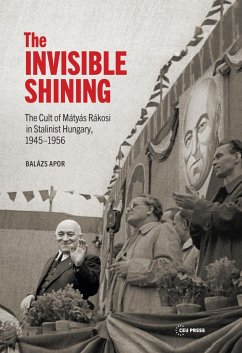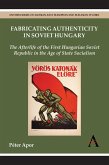This book offers a detailed analysis of the construction, reception, and eventual decline of the cult of the Hungarian Communist Party Secretary, Matyas Rakosi, one of the most striking examples of orchestrated adulation in the Soviet bloc. While his cult never approached the magnitude of that of Stalin, Rakosi's ambition to outshine the other "e;best disciples"e; and become the best of the best was manifest in his diligence in promoting a Soviet-type ritual system in Hungary. The main argument of The Invisible Shining is that the cult of personality is not just a curious aspect of communist dictatorship, it is an essential element of it. The monograph is primarily concerned with techniques and methods of cult construction, as well as the role various institutions played in the creation of mythical representations of political figures. While engaging with a wider international literature on Stalinist cults, the author uses the case of Rkosi to explore how personality cults are created, how such cults are perceived, and how they are eventually unmade. The book addresses the success-generally questionable-of such projects, as well as their uncomfortable legacies.
Dieser Download kann aus rechtlichen Gründen nur mit Rechnungsadresse in A, B, BG, CY, CZ, D, DK, EW, E, FIN, F, GR, HR, H, IRL, I, LT, L, LR, M, NL, PL, P, R, S, SLO, SK ausgeliefert werden.









